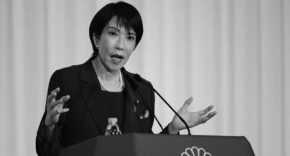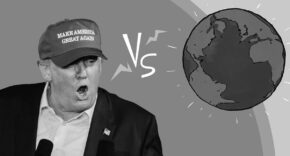A Sudden End to Negotiations
After weeks of promising negotiations between Washington and Ottawa, President Donald Trump abruptly ended trade talks with Canada on Thursday night. The decision came after the Ontario government released a $75 million television advertisement criticizing U.S. tariffs by using audio from former President Ronald Reagan. The ad’s message and timing infuriated Trump, who called it “fraudulent” and “egregious,” claiming it was designed to influence a pending Supreme Court decision over his authority to impose sweeping tariffs.
Trump wrote on Truth Social, “Based on their egregious behavior, ALL TRADE NEGOTIATIONS WITH CANADA ARE HEREBY TERMINATED. Thank you for your attention to this matter!” The announcement immediately halted efforts to reduce 35% to 50% tariffs on Canadian metals and automobiles—duties that have deeply strained the Canadian economy, particularly in Ontario.
The Ad That Sparked the Fallout
The Ontario government’s one-minute advertisement featured Reagan’s 1987 radio address on free and fair trade, in which the former president warned that tariffs “hurt every American worker and consumer” and lead to “fierce trade wars.” The ad aired widely across U.S. networks including Fox News, Bloomberg, and NBC, showing imagery of cooperation between the two nations and suggesting that Trump’s tariffs were harming both sides of the border.
However, the Ronald Reagan Presidential Foundation and Institute denounced the ad as misleading, stating that the Ontario government had not sought permission to use Reagan’s remarks and that the edited version “misrepresents” his address. The foundation said it was reviewing its legal options. Trump seized on that statement, claiming Canada had “fraudulently used” Reagan’s image and words to undermine U.S. trade policy and to “interfere” with the Supreme Court’s upcoming hearing on tariff legality.
Carney and Ford Respond
Canadian Prime Minister Mark Carney, who had recently met Trump in an amicable Oval Office session, expressed disappointment but maintained a conciliatory tone. Speaking from Ottawa before departing for an economic summit in Kuala Lumpur, Carney said, “We are ready to continue building on that progress when the Americans are ready.” He emphasized that Canada had made “constructive, in-depth and detailed discussions” with the U.S. to ease tensions in the steel, aluminum, and energy sectors.
Ontario Premier Doug Ford, who authorized the ad campaign, later announced that the ads would be paused starting Monday in an effort to calm tensions. Posting the full, unedited Reagan address on social media, Ford wrote, “Canada and the United States are friends, neighbors and allies. President Ronald Reagan knew that we are stronger together.” He also reiterated that Ontario “will never stop making the case against American tariffs on Canada.”
The Broader Context of Trump’s Tariffs
Trump’s tariffs—35% on most Canadian goods and 50% on metals—were initially justified as measures to protect U.S. national security and manufacturing. His administration has also accused Canada of failing to curb the flow of illicit fentanyl and other drugs into the United States. While some exemptions remain under the U.S.-Mexico-Canada Agreement (USMCA), the tariffs have hit Canada’s industrial heartland hard, leading to job losses and plant relocations. Stellantis recently announced it would shift a major production line from Ontario to Illinois, citing trade uncertainty.
National Economic Council Director Kevin Hassett defended Trump’s decision, telling reporters that “the Canadians have been very difficult to negotiate with” and that “frustration has built up over time.” He added that it was “probably a good time to take a break.”
International and Domestic Reactions
Reactions to Trump’s move have been mixed. Canadian officials privately expressed shock, saying that progress had been substantial before the talks collapsed. In Washington, some administration officials, including Commerce Secretary Howard Lutnick, have discussed the possibility of replacing the trilateral USMCA with separate bilateral deals with Canada and Mexico. Meanwhile, China’s embassy in Washington reposted a similar Reagan clip earlier this year to criticize Trump’s global tariffs, a move that may have amplified Trump’s suspicions of foreign interference.
Economic analysts warn that the breakdown in talks could lead to prolonged strain between the two allies. With more than three-quarters of Canadian exports bound for the U.S., the cancellation threatens billions in trade and raises doubts about next year’s scheduled USMCA review.
Despite the rhetoric, few believe the freeze will last indefinitely. Carney and Trump are both scheduled to attend the upcoming Asia-Pacific leaders’ dinner in South Korea, providing a potential opportunity for informal discussions. “Canada will restart trade talks when the Americans are ready,” Carney said before boarding his flight.
Still, Trump’s tone suggests that any resumption will come only on his terms. He reiterated on social media Friday morning, “CANADA CHEATED AND GOT CAUGHT!!!” and declared that “THE UNITED STATES IS WEALTHY, POWERFUL, AND NATIONALLY SECURE AGAIN, ALL BECAUSE OF TARIFFS!”
For now, the future of U.S.-Canada trade relations remains uncertain, suspended over a single advertisement that reignited decades-old debates about tariffs, patriotism, and the politics of free trade.




